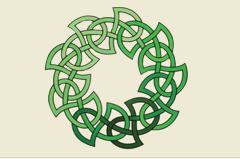Abstract
When describing the nature of fairy-stories, Tolkien famously coined the term "eucatastrophe" ("eu meaning "good") to express the effect of the "sudden joyous turn" that leads to the story's happy ending regardless of the dark events preceding it. Tolkien applies that word specifically to fairy-stories, but I would like to explore its meaning in relation to other genres and mediums that Tolkien was either unable or unwilling to consider. Classic literature and modern popular culture alike are ripe with the use of the "good" catastrophe, and this device is well-known by cultures from all parts of the globe. If it seems like a stretch to connect Greek linguistics, fairy-stories, British literature, Japanese film, and Korean TV dramas, come listen and let me have the chance to surprise you by demonstrating how much all of these have in common.
Recommended Citation
Stanifer, John
(2014)
"The Good Catastrophe: Tolkien on the Consolation of the Happy Ending,"
Inklings Forever: Published Colloquium Proceedings 1997-2016: Vol. 9, Article 16.
Available at:
https://pillars.taylor.edu/inklings_forever/vol9/iss1/16
Included in
English Language and Literature Commons, History Commons, Philosophy Commons, Religion Commons

